#akutami gege
Text
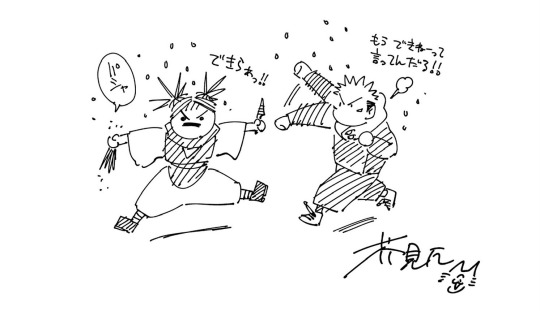
Gege’s silly doodle of the brothers for this week’s ep
#Choso#Yuuji Itadori#Itadori Yuuji#Yuji Itadori#Itadori Yuji#Gege Akutami#Akutami Gege#Jujutsu Kaisen#JJK#lux.txt#I JUST THINK THAT THEY’RE SUPER CUTE AND I WANTED THEM ON MY BLOG
4K notes
·
View notes
Text

#jujutsu kaisen#jjk#akutami gege#manga#itadori yuji#mangacap#cap#manga art#manga screencap#mangaedit#manga and stuff#monochrome#bw#b&w#black and white#jjk spoilers#jjk manga spoilers#manga panel#manga aesthetic#shonen#shounen
323 notes
·
View notes
Text
New Art from the new volume 25



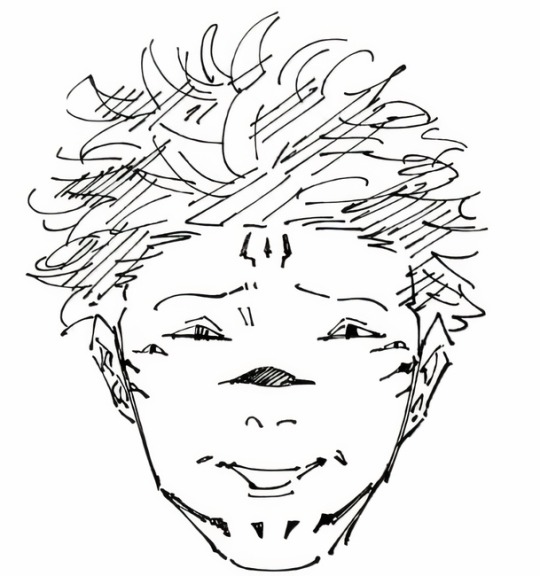
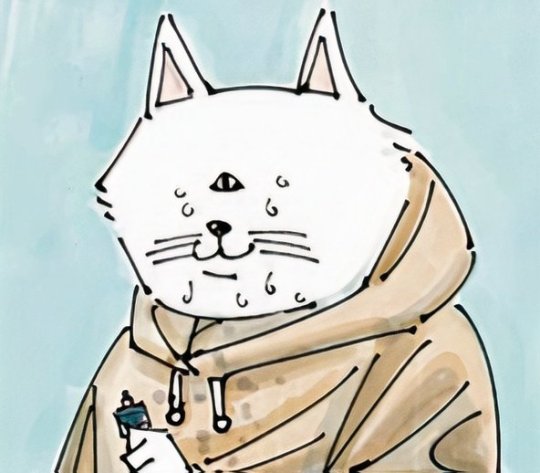
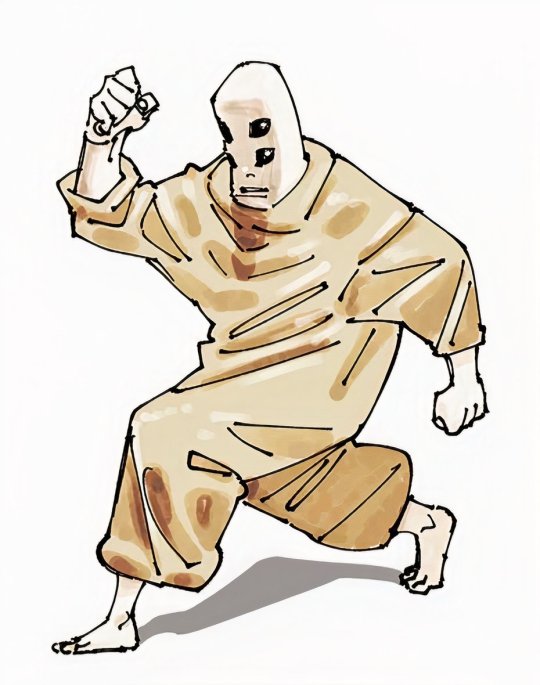

#jujutsu kaisen#jjk#sukuna#fushiguro megumi#toji fushiguro#yuji itadori#tengen jjk#shoko ieiri#itadori yuuji#ryoumen sukuna#ryomen sukuna#akutami gege
381 notes
·
View notes
Text
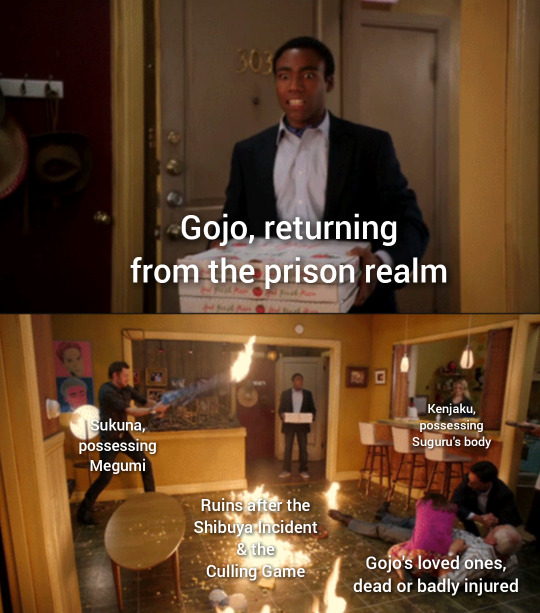

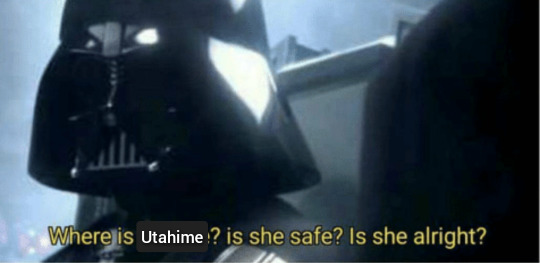



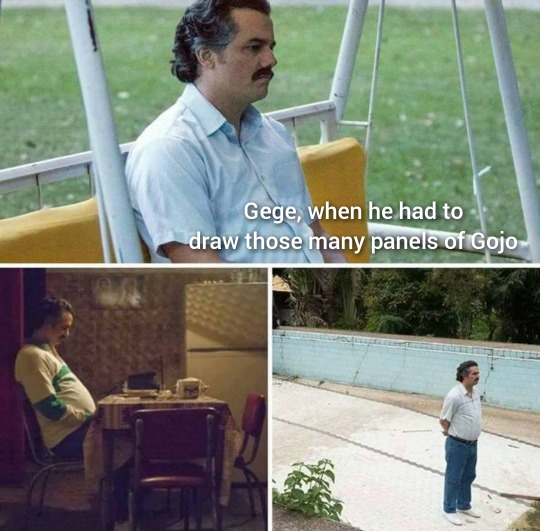

I was inspired by the new chapter.
#jjk memes#jjk spoilers#jujutsu kaisen#jjk#jjk 221#gojo satoru#satoru gojo#iori utahime#utahime iori#jujutsu kaisen memes#jujutsu kaisen spoilers#jjk manga#jujutsu kaisen manga#gege akutami#akutami gege#jujutsu kaisen 221
449 notes
·
View notes
Text
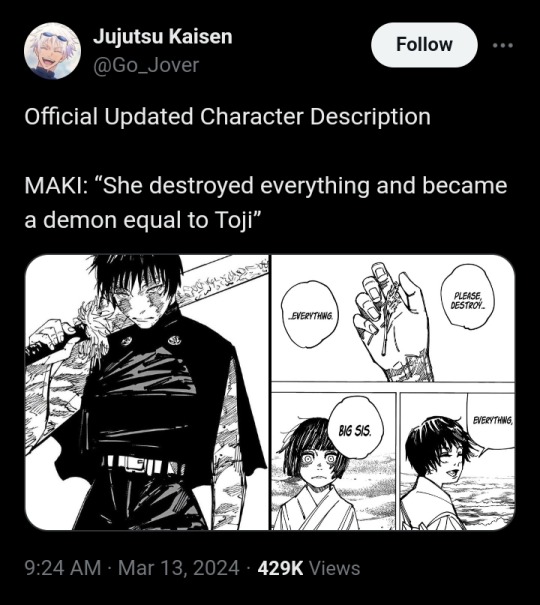
Gege saw Toji slander and said not on my watch! Gege will always defend his favorite boy. The fact that Maki is the only female character got to shine cause she's the female version of Toji, tells you how it is.
#find a man who loves you the way gege loves toji#toji fushiguro#maki zenin#gege akutami#fushiguro toji#zenin maki#akutami gege#zenin toji#jujutsu kaisen#jjk#jjk toji#art#jjk art#jjk official art
130 notes
·
View notes
Text
satosugu life wikis
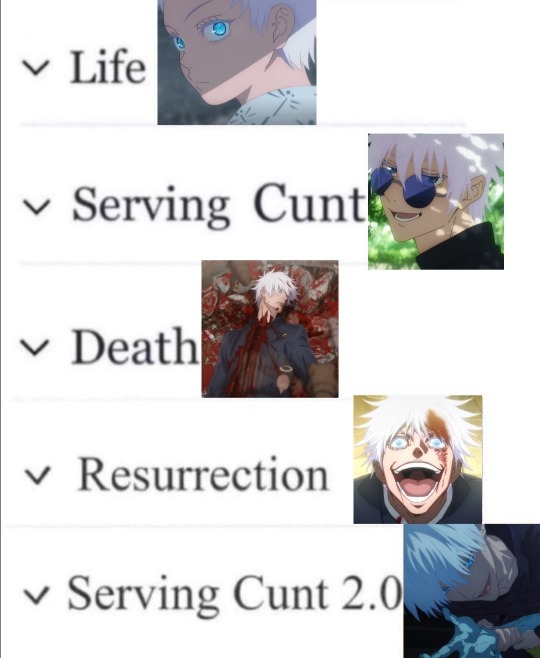
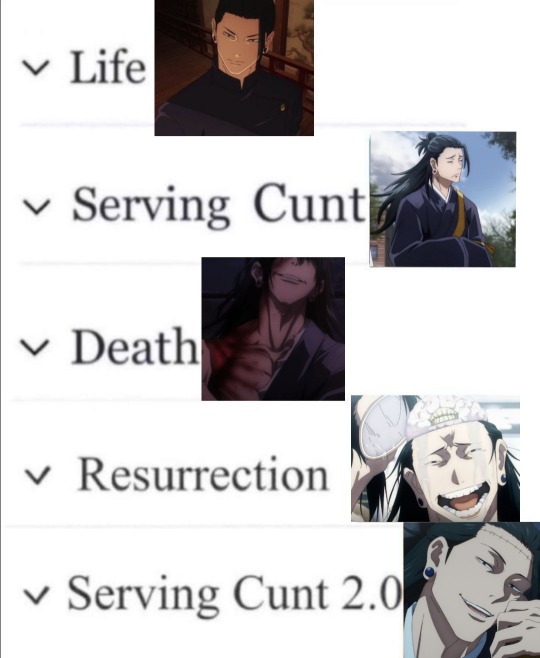
(by @uusatoru on twitter)
bonus
akutami gege life wiki
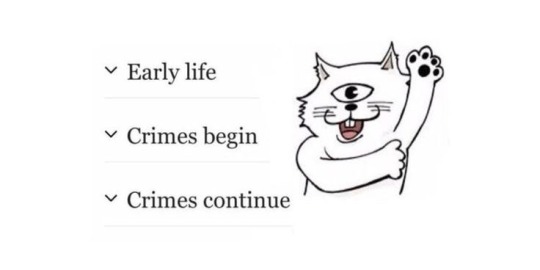
(by @lilmoyh on twitter)
97 notes
·
View notes
Text
fengqing every time they hear someone say “let gege cook”:
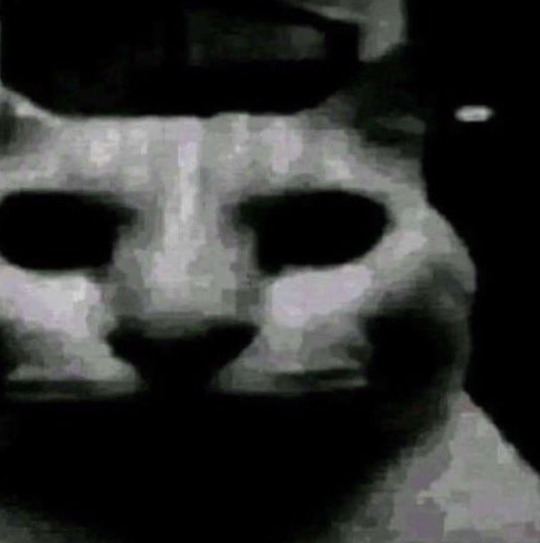
#niche jjk x tgcf meme but this is me in a nutshell#cattoru's#jjk#jujutsu kaisen#呪術廻戦#jjk manga#jujutsu kaisen manga#jjk anime#jujutsu kaisen anime#akutami gege#tgcf#天官赐福#danmei#fengqing#tian guan ci fu#heaven officials blessing#heavens official blessing#heaven's official blessing#heaven official's blessing#fengxin#feng xin#muqing#mu qing#tgcf feng xin#tgcf fengqing#tgcf mu qing#tgcf my wing
55 notes
·
View notes
Text
some of the silliest gege's author comments to make your day (hopefully) (i cant guarantee) (pls proceed w caution) (contain MANGA SPOILERS)



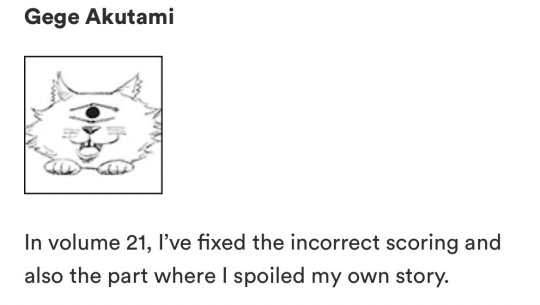


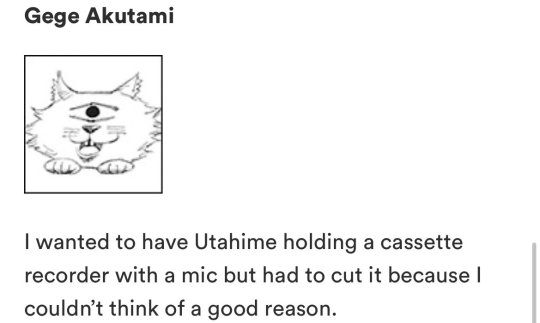

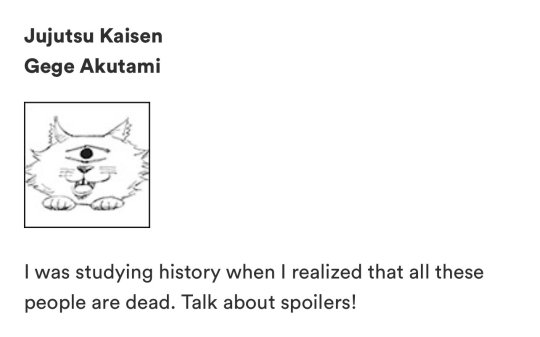
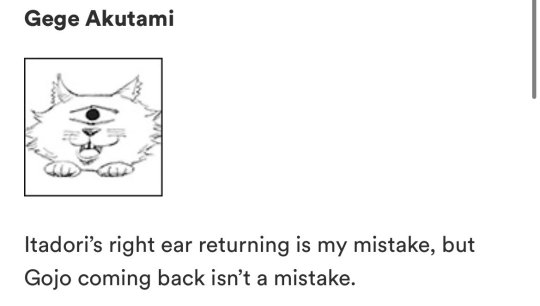
and honorary mention
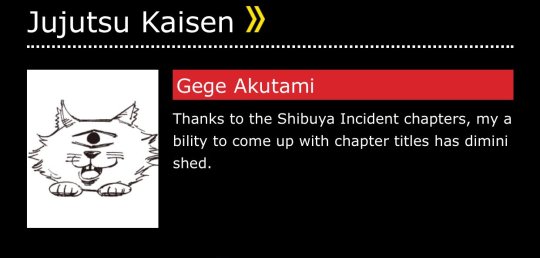
177 notes
·
View notes
Text
He looked so lifeless in this shot💔

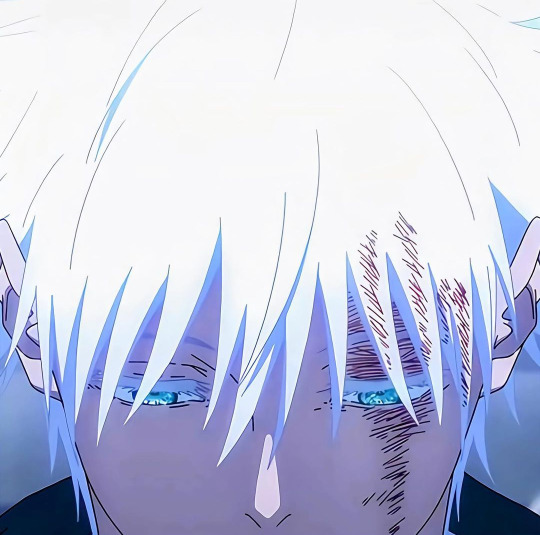

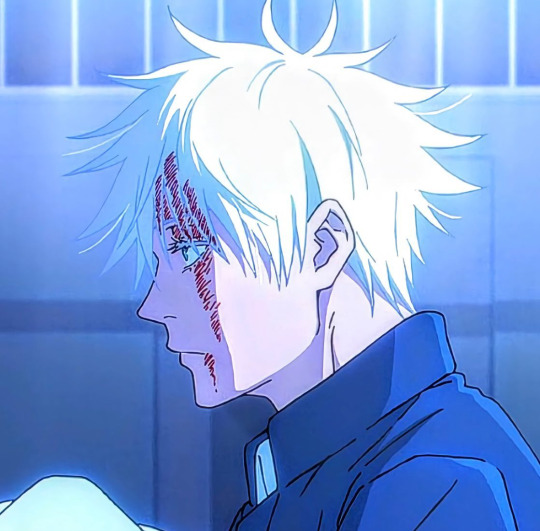
#satoru gojo#gojo satoru#jjk satoru#jjk gojo#jujutsu kaisen anime#jujustu kaisen#jujutsu kaisen manga#anime and chill#anime and manga#jujutsu kaisen season 2#manga#jujutsu sorcerer#jjk#anime#gege when i catch you gege#gege akutami#akutami gege
118 notes
·
View notes
Text
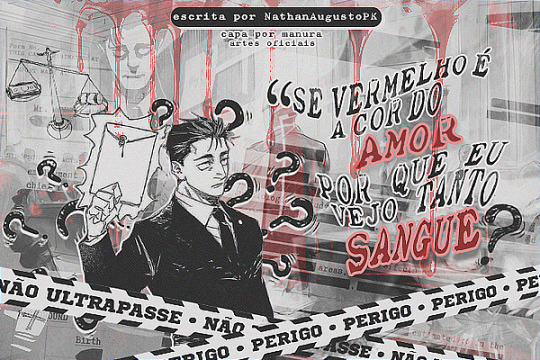
A primeira de 2024 veio aí!
#jujutsu kaisen#jjk#akutami gege#vol 19#higuruma hiromi#hiromi higuruma#volume cover#official media#official art#manga#manga art#jjk spoilers#woot woot#the volume cover he deserves#manga cover#spirit#fanfic#spirit fanfics#capa design#capa fanfic#capa simples#capa dark#capa divertida#capa spirit#capa de fanfic#hinata#design simples#capa para social spirit
67 notes
·
View notes
Text

Gege’s Yuuji doodle for this week’s ep is so cuuuttteeee 😭
#Yuuji Itadori#Itadori Yuuji#Yuji Itadori#Itadori Yuji#Gege Akutami#Akutami Gege#Jujutsu Kaisen#JJK#lux.txt
937 notes
·
View notes
Text

#jujutsu kaisen#jjk#akutami gege#this panel is wild out of context#manga#cap#mangacap#kenjaku#geto suguru#takaba fumihiko#jjk spoilers#jjk manga spoilers#allanimanga
361 notes
·
View notes
Text
Women in Jujutsu Kaisen
Let’s get this out of the way first: if you’re reading this because you enjoy reading posts by people who hate Jujutsu Kaisen, you’re going to be disappointed. I actually like Jujutsu Kaisen a lot, I have a lot of positive things to say about it, and I’m going to be explaining my reasoning here. You should probably move on if you want trash talk. But if you have a negative view point that you’re nevertheless willing to reevaluate or recontextualize by looking at things from a new perspective, please read on.
A lot has been said about how women are written in Jujutsu Kaisen. A lot of good, and a lot of bad. I think a lot of the bad comes from how Jujutsu Kaisen was praised so early on for how it’s women were written, only for people to either not see it or have their expectations not be met due to events in Shibuya and the Culling Games. However, while I try to respect diversity of opinion, I feel like a lot of people aren’t really grasping why the way GeGe Akutami writes women was lauded. I think a people have lots of different ideas of what makes for a well-written female character, and don’t find what they’re looking for in Jujutsu Kaisen, thus they get angry and they post online about how GeGe Akutamisogyny isn’t going to beat “the allegations.”
I’ve never liked the justifications put forth for that argument. There’s a lot of subtext to how the female cast of Jujutsu Kaisen are written that can’t fit neatly into the simple world of page and panel counts or win-loss ratios. And, fortunately, there are tools for feminist literary analysis that I am going to employ in what will hopefully be a short trilogy of posts, starting here.
When I see people criticizing how women are written in Jujutsu Kaisen, I usually only see them using one point of interest: the outcome of a fight. If a female character doesn’t win a fight, then some people in the audience take that to mean that GeGe Akutami hates that character, hates women, and doesn’t want them to succeed — or some variation of that, perhaps less extreme.
This is a product of Jujutsu Kaisen being a Shonen, and thus being on the radar of Shonen fans who — let’s be honest — are not known widely for consuming anime or manga outside of the Shonen demographic. Shonen is heavily focused on conflict and competition as storytelling, it’s why the term “battle shonen” is used so prevalently. And Jujutsu Kaisen doesn’t try to deny its own Shonen heritage: it uses fights for storytelling all the time, sometimes even more than other Shonen seem to do.
I think this might also be a cultural thing. Anime and manga are written very differently from Western movies or comic books, with very different cultural background and different artistic sensibilities. However, that’s a topic that I’ll unpack another time, maybe not even in Part 2 or 3 of this post.
Point is, we need to step back and get some perspective. People who use the losses or deaths among the female cast as evidence that GeGe hates women, or sees women as inferior, or has some sort of passive, culturally-inherited sexism in their worldview are suffering from tunnel vision. You need to look at the story as a whole sometimes, not just the one subject in question.
Go back to the Goodwill Event, and the fight between Nobara and Momo. Their whole conversation is a huge part of why Jujutsu Kaisen was praised early on for how Akutami writes women, and I think the subtext of it really went over some people’s heads. It did mine, the first time around: to me, it just felt like a competent, if tired “girl power” moment for Nobara. But as I invested more time and thought into reading the series, and as I learned more since first viewing that scene, I started to realize what I wasn’t seeing in that scene.
Momo shares something in common with all of the Kyoto Students, Todo and Miwa being the exception. In addition to seemingly coming from a more-or-less established sorcerer pedigree, Momo shares the general pessimism that hangs over the Kyoto Students like a dark cloud. There’s this very morosely Japanese sense of “woe is me, but there’s nothing to be done” about Momo, Mai, Noritoshi, and Mechamaru, in one sense or another. These four are people who will complain about a problem, then just sit while it washes over them and batters them like a wave. They just accept the unfair hand they’re dealt in life, and while they don’t like it, they treat it as something no one can overcome. Furthermore, on some level, I think these four don’t necessarily want to overcome the misfortunes and injustices they face.
See, Momo pours her heart out at length about how hard it is being a woman and being a sorcerer. And the way she talks about it is a very different critique of society than you’d see in a lot of Shonen. She talks about how women are expected to be perfect: beautiful, graceful, exquisite, the model of femininity, while also keeping up with the macho “might makes right” sensibilities that dominate sorcery. In her words, “men have to be strong, women have to be perfect.”
This isn’t something that’s just being plucked out of thin air, this is a criticism of the girlboss culture that arose through the 2000s and 2010s up to now. Women are expected to battle sexism alone, in their own lives, by being exceptional: rather than reforming cultural structures that put women at a disadvantage to men, girlboss culture says women just need to always wear perfect makeup, always be fashionable, always work 2.5 times harder than men, and find time to raise children and have a side-hustle at the same time. Instead of fixing the problem, it’s telling women, “Just work harder. Just be better.” As if women haven’t been having to work harder for nothing in return for the past 50 years, holding down jobs that they have to go above and beyond to prove themselves in as compared to male coworkers for whom the job might as well be a guarantee by comparison, having a ceiling put on their promotion while men who didn’t put in as much work get to move up the company ladder, and frequently having to juggle having a child and taking care of housework in addition to the expectations of jobs that often don’t afford maternity leave. And then, on top of all of that, the expectation is then foisted on to have the time and energy to perfectly craft your hair, makeup, and outfit for the day, and if you miss a single step of the whole stupid dance, you’re seen as an underachiever. That’s girlboss culture, and that’s what Momo is indirectly criticizing when she laments the contradictory and unfair expectations women in the sorcery world have to uphold. They need to fight just as hard as the men, while wearing skirts and not getting a single scar on that pretty face.
(Just as an aside, I love the way this conversation comes about. Momo and Mai are pretty close to each other, to the point that it sometimes feels like nobody else in the Kyoto school likes or respects Mai like Momo does. And Momo targets Nobara with this whole speech because of the friction between Mai and Nobara, and because she wants to stand up for Mai. I like that element of both solidarity and conflict between women, about being a woman, and I’ve always gotten sapphic vibes from Momo and Mai, so I’m glad that she’s the one giving this whole speech and why she’s doing it. But I digress.)
And the thing is, she’s not wrong. Neither Nobara nor the story as an overall entity refutes anything she says. However, Nobara points out something else about Momo that she shares in common with the other Kyoto Students who were raised to be sorcerers: the way she treats her whole life like a job. Momo has internalized the culture she despises, and instead of trying to rebel, she just accepts all of it as “the way the world works.” She soldiers on, just as Noritoshi soldiers on with his family’s expectations, Mai soldiers on with her pain and feeling of being abanoned, and Mechamaru soldiers on with the isolation, unfairness, and general misery that comes with his Heavenly Pact. Soldiering on, as if soldiering on has inherent value when it leads nowhere and accomplishes nothing. Never addressing the problem, or trying to find a way around it; simply rolling that boulder up the hill, grumbling all the way. She and the other Kyoto Students have this sense of treating their own misfortune as a badge of honor. To them, they’re justified and validated because they have experienced more than their fair share of suffering. They’re always eager to flaunt the crosses they have to bear.
Momo treats being a woman as a curse. Funny how that ties into the rest of the narrative, huh?
For Nobara, being a woman is not some great burden she has to live with. Being a woman in general and being Nobara Kugisaki in particular is something she revels in, and it’s just the fault of everyone else if they think otherwise.
Let’s talk about Nobara, and let’s not reduce her to her death scene. When we meet Nobara, she’s immersing herself in the Tokyo way of life after moving from the countryside to the big city. She encounters a sleazy talent agency recruiter who’s pestering women on the street with his hand-rubbing, obviously nefarious ways… only for Nobara to stop him, turn him around, and say, “What about me?” He gets intimidated, tries to run, and she drags him back. From her perspective, he should be happy to have her, and the fact he isn’t means he’s ignorant of her beauty and wit and needs to be corrected. If he won’t convert to Kugisakism, then her charms are wasted on him, and he’s doomed to the dim world that is Nobaralessness. When she meets Yuji and Megumi, she introduces herself with a line that’s translated into English as, “I’m the only woman in your group.” But from what I’ve been able to gather, her line in Japanese is, “I’m the red mark.” The phrase “red mark” can mean “the one who’s different from the others” — like the one girl in a group of boys — or it can mean “the one who stands out.” So you can also read it as her saying, “I’m the stand-out of the group.” Nobara Kugisaki, everybody.
If you want to talk about how literary circles analyze how women are writing, let’s leave the topics of fight outcomes and feats to one side. One thing you immediately look for is motivation. What’s motivating a character? This is important for how female characters are written, and especially in Shonen, which revolves so much around characters with some goal or belief that the story pursues through fights and other forms of adversity.
Now poorly-written women will tend to be motivated by men. They’ll be attracted to a man, or trying to support or protect a man, or trying to find a man. This by itself isn’t a death sentence for a woman’s characterization, but it is a red flag. It’s also not as if women have to never interact with or think about men to be well-written. It’s not an on-off switch, a bad writing-good writing switch. It’s a meter, like Mahoraga steadily adapting to a technique. Just a little bit is fine, and can be even turned into good writing in capable hands. But if it becomes too prevalent and is never examined, then you get a situation where a story’s women are not permitted lives outside of being in a male character’s orbit.
How do we gauge this? Well, there are lots of ways, but one of the more well-known and simple techniques is the Bechdel test. The name is derived from Alison Bechdel, feminist author who penned such classics as Dykes to Watch Out For. Bechdel proposed a simple litmus test for how to tell an author’s seriousness about writing women, and it goes like this:
1.) Look for scenes where women talk to each other.
2.) In those scenes, check for how often they’re talking about things besides male characters.
This isn’t the only way to tell if women are written well or not, and some will say it isn’t even the best way, but it’s a good foot in the door to get us thinking about what divides well-written female characters from poorly-written female characters. I’m not going to go back and scan through the whole manga just yet, but let’s look at some examples.
— The aforementioned conversation between Nobara and Momo, where the two pit their different view of what it means to be a woman and a sorcerer against one another.
— Maki and Nobara talking to each other after the encounter with Mai and Todo. Curious by meeting Maki’s sister, Nobara talks to Maki a bit about their upbringing. Having gained more insights into Maki’s past and personality, Nobara leans on her and tells her how much she respects her.
— Miwa and Mai discussing the upcoming Goodwill Event in a flashback. Mai tells Miwa that Maki is weak, which leaves Miwa unprepared for their fight.
— Maki and Mai arguing and coming to terms with what drove them apart. Mai just wanted a peaceful life with Maki, but Maki couldn’t be happy and authentic with herself if she just left things the way they were. She was forced to choose between herself and Mai, and Maki chose herself, knowing that Mai would suffer and that she’d shoulder some of the guilt for that.
This indicates that GeGe found it important to divorce the identities of the female characters from male characters. And this holds true in what drives and motivates the female cast.
Nobara is motivated by her own goals. She hates the countryside, and she loves the city; becoming a sorcerer is a way she can make a lot of money, live in the city, and pursue the kind of lifestyle she values. She wants to be a true blue Tokyoite, wearing trendy clothes and eating crepes and taking selfies by the statue of Hachiko outside Shibuya Station. She’s not doing this to avenge her dead brother, she’s not doing this to find her father, she’s not searching for a strong man to sire strong children — yuck. Nobara has aesthetic values and strongly held beliefs, and becoming a sorcerer lets her pursue those values and beliefs.
And if you really want to analyze the action side of Jujutsu Kaisen as an indicator for how GeGe feels about female characters, consider how Nobara takes to sorcery like a fish to water. Both Megumi and Yuji have their own internal dilemmas with being a sorcerer, but not Nobara. In a series where mindset is so important, Nobara has the mindset. Uro describes the model sorcerer as having “no concern for others and an overwhelming sense of self.” There is no one with a more overwhelming sense of self than Nobara. She’s loud, opinionated, loves to argue, flaunts herself, and demands other people give her more than what they think she’s due. She’s narcissistic, but that faith in herself makes her mentally strong.
She lacks experience, but even then, she learns and grows rapidly through the series. Due to running out of nails to fend off cursed spirits during the first stretch of Fearsome Womb chapters, she invents Hairpin as a way to reuse nails she’s already launched and embedded in a surface. She manages to land a Black Flash during the tag team fight with Yuji, and it’s her oppressive use of Resonance on Eso and Kechizu that turns the tides — a tactic which required her to hammer nails into her own arm. She takes it on the chin and gets her brain rattled around in her skull during the fight with Haruta, but even while borderline unconscious and suffering from a concussion, she forces herself to keep him talking in hopes Nitta can escape and manages to get to her feet and keep fighting despite the total disorientation and inability to summon her strength. While she didn’t win the fight, she showed more fighting spirit than half of the male cast tends to, and I find it kind of gross that people will ignore all of that and mock someone who kept fighting against the odds. That’s like laughing at Mumen Rider when he’s hopelessly trying to fight Sea King even as his body is breaking. I don’t exactly see what about either case is so funny or worthy of ridicule.
Even in the showdown with Mahito, people always fixate on how she dies, but never consider what led to it. She crosses paths with Mahito, and even knowing from Yuji what he’s capable of, she goes in — partially because he hurt Yuji, her friend, and she wants to make him suffer for it. And her technique turns out to be a worst case scenario for Mahito. She’s hammering his clone with Resonance and sending the blowback to the original while he’s fighting Yuji, dividing his attention and weakening him. Her only mistake was chasing him down, and even then, this isn’t the story punishing her. It’s the story being consistent with who Nobara is. She’s got a dangerous enemy on the ropes, her pride is bruised after the fight with Haruta, and she has a chance to get vengeance on someone who’s hurt her friend while helping said friend in the process. If she hadn’t followed Mahito into the subway, then she wouldn’t be Nobara Kugisaki.
And in her final moments, Nobara achieves something that’s considered to be out of reach of most sorcerers. She dies content, with a smile on her face. Nobara may not have realized her potential to be a great sorcerer, but she got what she, personally, wanted. Sorcery was a means to an end, and she got to live the Tokyo life and meet interesting people that she considers her friends. She got to fill out that finite number of seats in her life, and even meet a few people who pulled up a chair when she didn’t expect it. In her words, “It wasn’t so bad.” Nobody else but Toji and Gojo have gotten to die this satisfied — Toji because Megumi had grown up free of the Zen’in curse, Gojo because he was authentic to himself right to the end and left it all on the field. Nobara was authentic to herself right to the end, and that’s worthy of high praise. If she is definitely dead and not coming back, then she managed to accomplish what it was she wanted before dying. Not many get that luxury in Jujutsu Kaisen. It hurts because I liked her and admired her and appreciate the way she was written, and her dying doesn’t make the value of her character disappear from the story entirely. It’s the character’s death, it’s everything that led to that death and what that death means to them and to those who are left behind. And if it’s manga that explore death, nobody does it better than GeGe Akutami.
Lots of people will point to an interview where GeGe said that Nobara was not originally considered part of the cast, and they’ll use that as evidence that secretly, GeGe’s a big stupid misogynist who hates women and likes killing them in stories and blah blah blah blah blah. You know, first of all, I doubt that the editor held a gun to GeGe’s head and said “Put in a female main character or die.” Secondly, if GeGe really didn’t care, Nobara would just be a two-dimensional copy of Sakura who dies in the first arc or two. GeGe would not have put in the effort to set her apart from other female leads, or given her so many stand-out moments, or given her such an interesting motivation and world view. In short, if GeGe didn’t want to write a female character, they’d do what Kishimoto did: write Sakura. But that comparison is a can of worms I’ll need to pry open another time.
To sum up for the time being, no, GeGe Akutami does not hate women. Losing a fight does not make a female character worthless, and does not indicate a disdain for them on the part of the author. I don’t know about you, but I don’t read Shonen just to see who punches harder. I want to see characters be challenged, sometimes fail, learn, grow, and overcome adversity — and it wouldn’t be adversity if all the characters I like win and survive easily. I love Kashimo and will continue to love Kashimo, and Kashimo being super ultra dead doesn’t change that.
Look out for Part 2, in which I’m going to unpack some really contentious stuff when it comes to challenges and female characters in Jujutsu Kaisen. We’re gonna talk about the concept of screen time, we’re gonna talk about subtext, we’re gonna talk about great expectations and the great unexpected in Jujutsu Kaisen, and we’re gonna talk more in-depth about the narrative outside the narrative of Jujutsu Kaisen in a vacuum. If your sense for danger is giving you a bad feeling about this, then it should be: we’re talking about that. Switch on your Anti-Gravity System, it’s going to get messy.
#jujutsu kaisen#literary analysis#analysis#jjk analysis#feminism#feminist literature#feminist literary analysis#nobara kugisaki#maki zenin#akutami gege
100 notes
·
View notes
Text
all jokes aside w/ gege, please don’t threaten him bc of ch236 🙏🏻 even though i love gojo a lot, i wouldn’t like to see something happening with akutami after that law in japan only bc he killed his fictional character in the manga. we can keep joking and all but please let’s respect him as a human being first and also for giving us a great story with even more amazing characters 🫶🏻
#jujutsu kaisen#jjk#gojo satoru#jjk gojo#satoru gojo#jjk satoru#gege akutami#akutami gege#jujutsu gojo#gojou#jjk gojou#gojou satoru#satoru gojou
69 notes
·
View notes
Note
How are the jp fans taking the news? They also inhaling copium? with the "as long as his head is still fine..." logic
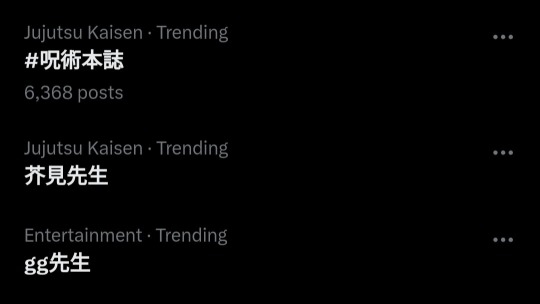
Ah yes. From topmost, hashtag is "magazine jjk", akutami-sensei, and gg-sensei. Mostly i saw aktm-sensei 人の心なかった (hito no kokoro nakatta, does not have a heart), not to mention his weekly comment :")
81 notes
·
View notes
Note
with gojo, geto and even kenjaku dead, do you think satosugu's story is completely over? because for me personally, if this is the end of their story, it feels kinda unsatisfactory and inconclusive. i hope we get more content and there are so many questions about their story that still need to be answered. i dont expect gojo's censored last words to geto to be revealed ever but i hope we get at least a somewhat conclusive ending.....
Just a heads up to anon(s), I try to keep things as spoiler free as possible by tagging so try to be mindful of that in your questions where possible, pleaseee
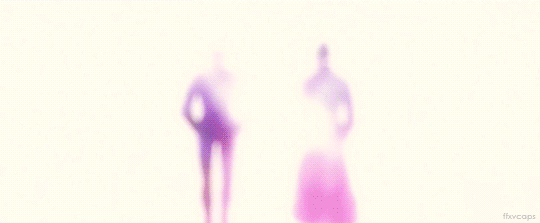
⚠️ Spoiler warning for chapter 236 of JJK.
First things first, I don't think we've seen the last of Gojo, jump down to that spoiler warning to see more info on why I think that. In summation, even if it's short lived, I think he's still in play and what we saw in 236 was a dying thought not quite committed one way or another. That or there is a battle to be won or a facet of Kenjaku's plan that will be explored in the purgatory we've seen.
I'm not sure if it's a proper conclusion to Gojo's character if we don't see a remediation of his hubris unless the intention is to see some sort of redemption through ItaFushi. All that to say, I think Gojo has a decision to make regarding getting on that plane or not.
I don't know that, stylistically, Gege is the type of mangaka that will give us something comprehensive enough to address the truth of Geto's parents or what he did in the 10 years of his separation from Gojo. Exposition wise, we tend to get information introduced to us very passively like how Megumi talked about Yuta long before he was introduced. A better of example of their exposition style is how they soft launched Choso's relation to Yuji, subtle enough to be missed, until we got the big reveal with Kenjaku!Kaori.
But I also absolutely do think we'll get Gojo's last words to Geto. This is the same person who penned the following devastating one liners:
There is no curse more twisted than love.
My Six Eyes tell me you're Suguru Geto. But my soul knows otherwise!
The sound of the Gion Shoja bells echoes the impermanence of all things; the color of the sala flowers reveals the truth that the prosperous must decline. However, only we are the exception.
When you die, you die alone. Dying to win and winning despite dying are two separate things. Be greedier.
You really think they won't turn the knife on SatoSugu one more time with that reveal? Even though they've already told us those final words were spoken already throughout JJK0. I still think it's that first one.
#neon asks#anon asks#manga with me#manga with me jjk#jjk#jujutsu kaisen#anime#manga#satosugu#we are the strongest#jjk theory#jjk meta#gojo satoru#satoru gojo#geto suguru#suguru geto#gege akutami#akutami gege
42 notes
·
View notes